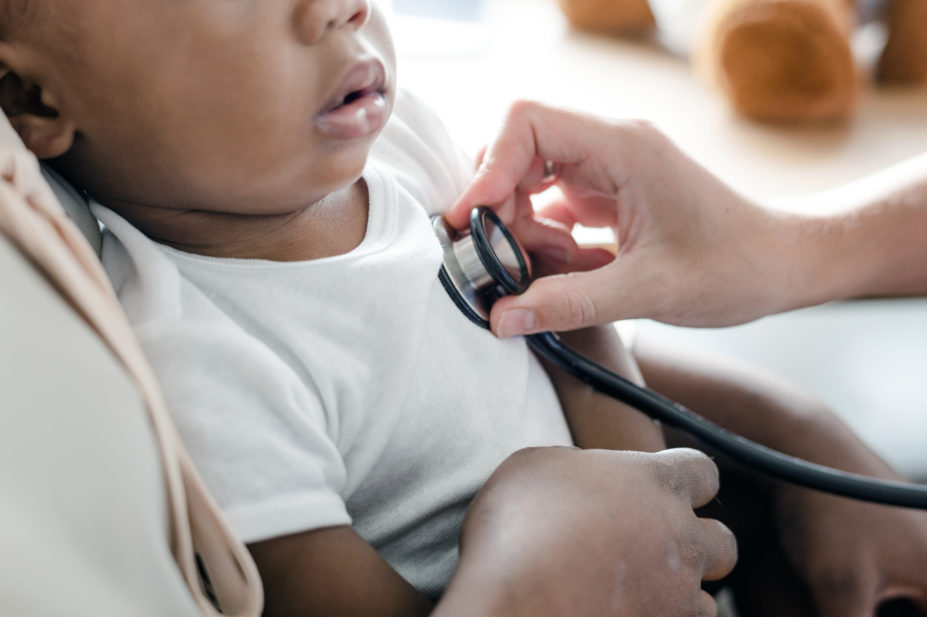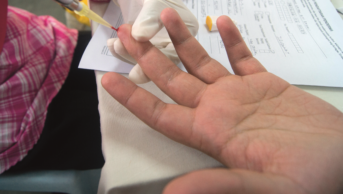
Shutterstock.com
Open access article
The Royal Pharmaceutical Society has made this article free to access in order to help healthcare professionals stay informed about an issue of national importance.
To learn more about coronavirus, please visit: https://www.rpharms.com/coronavirus
An outbreak of respiratory syncytial virus (RSV) in autumn 2021, and then influenza in winter, could be around twice the magnitude of a ‘normal’ year, potentially overlapping with another peak in COVID-19 infections, a report from medical leaders has warned.
The report from the Academy of Medical Sciences — ‘COVID-19: Preparing for the future. Looking ahead to winter 2021/2022 and beyond‘ — published on 15 July 2021, warns that a potential third peak of COVID-19 infections over summer 2021 may coincide with outbreaks of other respiratory viruses in autumn and winter, leading to increased pressure on the NHS.
It states that, as respiratory infections can act synergistically in humans, potential interactions between SARS-CoV-2 and other respiratory viruses and viral variants were “a concern”.
Given the overlapping symptoms between respiratory infections, the report recommends routine multi-pathogen testing for SARS-CoV-2, influenza and possibly other respiratory infections to inform surveillance, treatment decisions and reduce transmission rates.
“We strongly support multiplex testing. However, if this is not feasible, well-evaluated and accurate point-of-care testing for influenza should be deployed in hospitals, primary care settings, care homes and community pharmacies,” it says, adding that measures such as face coverings, social distancing and working from home should continue to be implemented in situations where there is a high risk of transmission.
RSV is a seasonal winter virus that causes lower respiratory tract infections, generally prevalent between October and March each year. It often causes mild, self-limiting illness but may cause severe illness in vulnerable infants at high risk of infection, resulting in hospitalisation.
According to a COVID-19 therapeutic alert, issued by the Department of Health and Social Care (DHSC) on 29 June 2021, the preventative measures taken during the COVID-19 pandemic had resulted in an almost complete elimination of common respiratory viruses affecting children, including RSV, meaning that the current UK cohort of children and adults who have not been exposed to RSV was “considerably higher than normal”.
Other measures in place to help manage the rising levels of RSV include an extension of the eligibility criteria for passive immunisation against RSV with the monoclonal antibody, palivizumab.
A COVID-19 rapid policy statement issued by NHS England and NHS Improvement on 29 June 2021 proposed that the eligibility criteria for palivizumab be widened to include a larger population of at-risk infants to decrease hospitalisation and intensive care admission rates.
Orlagh McGarrity, lead antimicrobial pharmacist at Great Ormond Street Hospital (GOSH), said that although the hospital was currently seeing low numbers of RSV in inpatients, it was anticipated that the number would rise “over the coming weeks”.
“We have developed our RSV surge plan, which is reviewed regularly and has input and consideration from clinical and operational leads, critical care, infection control and pharmacy and others,” she explained.
“Plans are centred on expanding intensive care units’ and high dependency units’ capacity to support the care of the sickest patients whilst maintaining specialist tertiary and quaternary services at the trust and supporting increased activity across the region.”
McGarrity said that education would be vital in expanding critical care capacity and that the education leads at GOSH had a well-developed education programme to up-skill staff built on their experience during COVID-19.
“GOSH have identified vulnerable eligible patients and are planning for immunisation with palivizumab effective immediately with the aim of preventing hospital admission.”
Palivizumab is given as an intramuscular injection and five doses are usually required to cover the typical RSV season. However, the DHSC alert noted that if the RSV season runs for longer than a typical season, up to seven doses may be given.
Training package to help with RSV surge
Health Education England (HEE) has launched a training programme to help healthcare providers cope with a predicted early surge in respiratory syncytial virus (RSV) across care settings.
The HEE training, which is being developed in partnership with the Paediatric Operational Delivery Networks and with support from the Paediatric Critical Care Society, includes both existing and newly developed resources for all healthcare staff who care for unwell children.
The aim of the free eLearning programme is to support the cross-skilling of the NHS workforce to manage existing demand in children, potential future spikes in paediatric demand as a result of RSV and other respiratory illnesses in children, as well as longer-term increasing paediatric acuity and demand in children.
According to HEE, the programme has been launched initially in draft form including a call for additional content and early feedback to ensure the programme meets the needs of healthcare staff and provides a platform for sharing learning and best practice.


